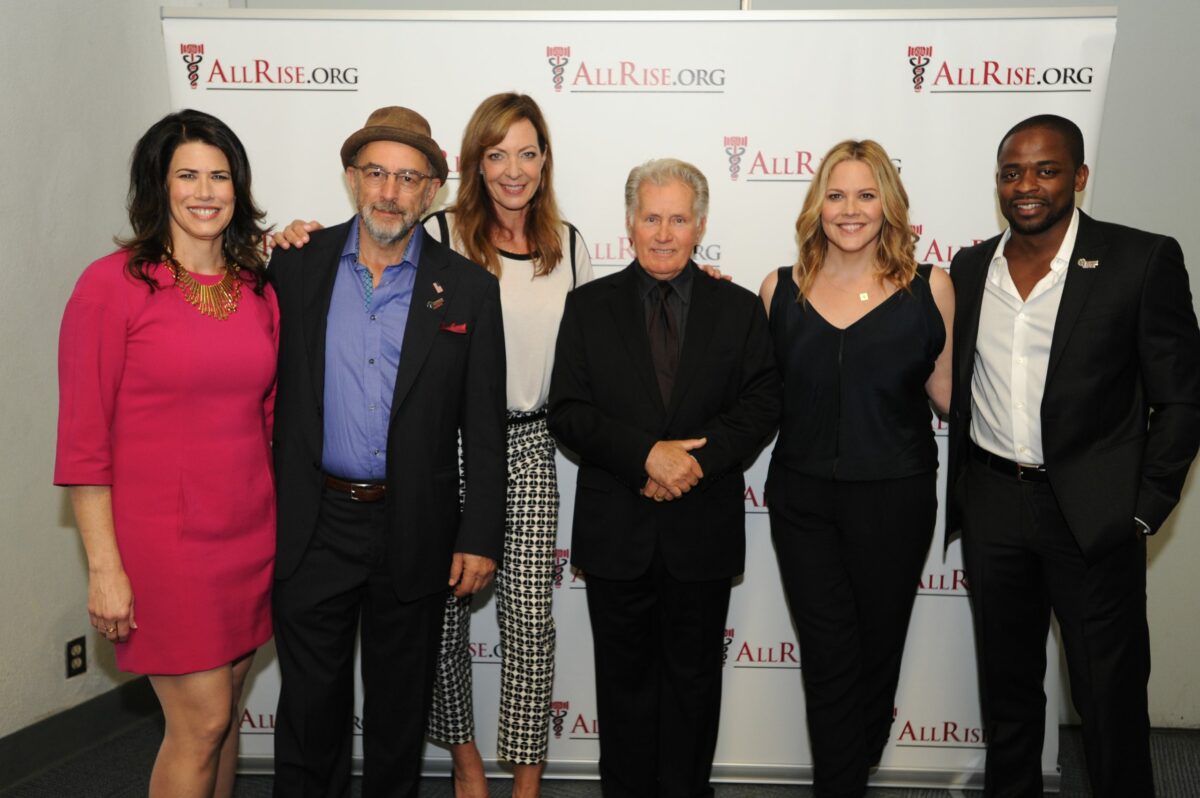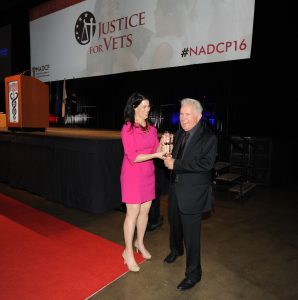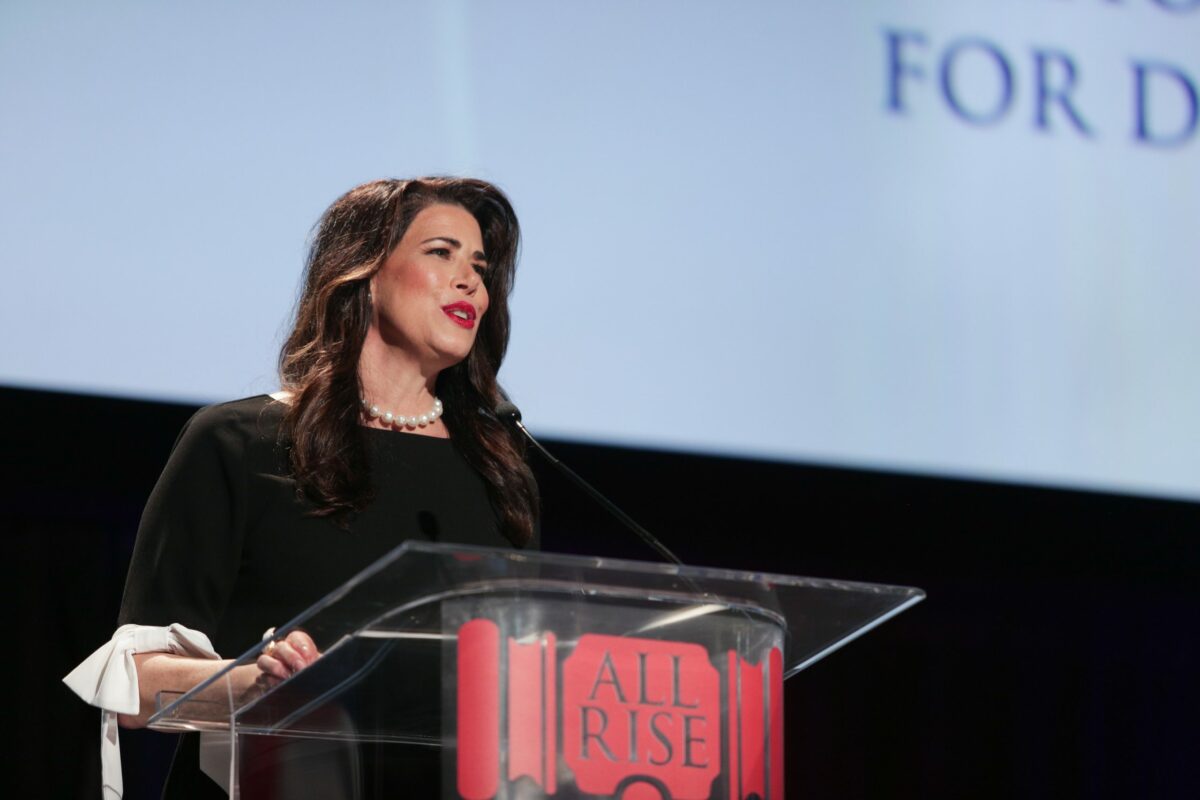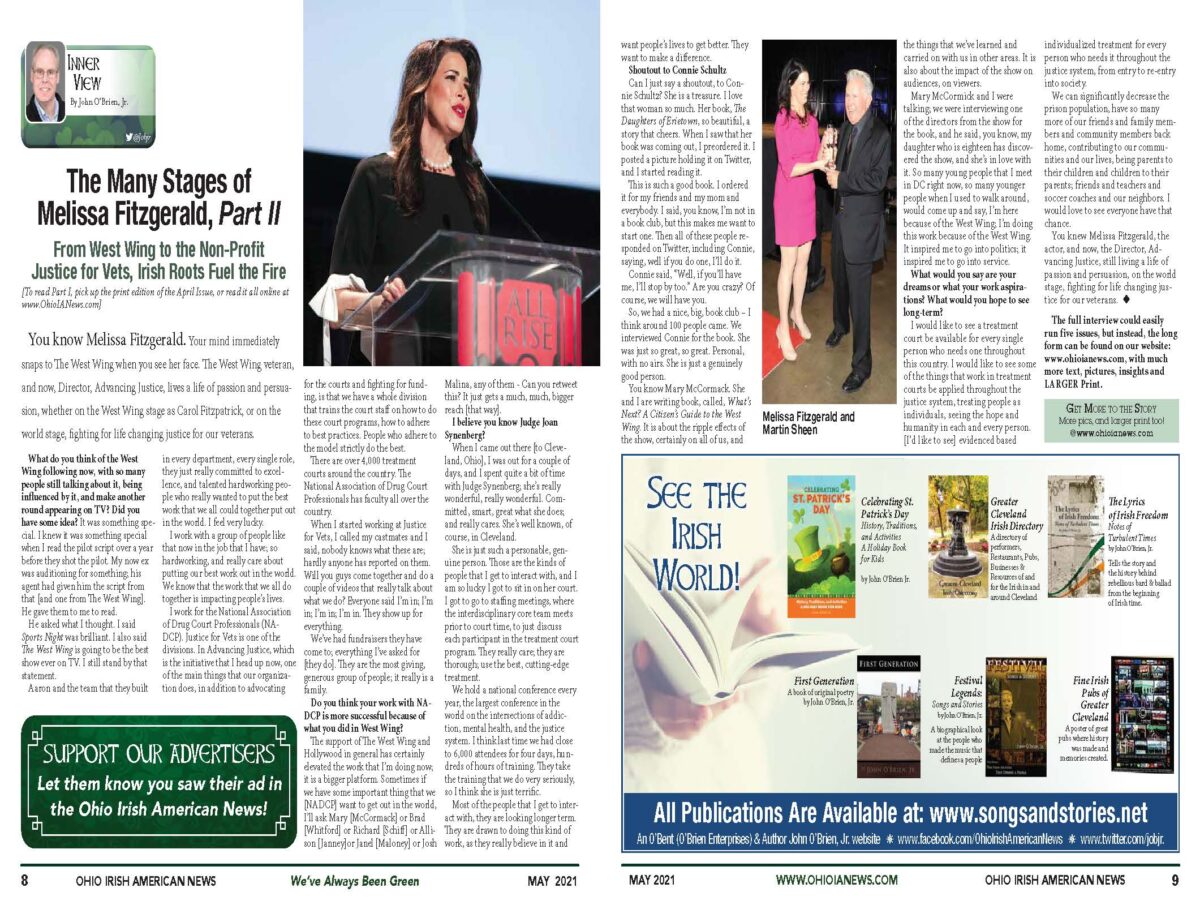

Inner View: The Many Stages of Melissa Fitzgerald, Part II
From West Wing to the Non-Profit Justice for Vets, Irish Roots Fuel the Fire
By John O’Brien, Jr.
[To read Part I, pick up the print edition of the April Issue, or read it all online at www.OhioIANews.com]
You know Melissa Fitzgerald. Your mind immediately snaps to The West Wing when you see her face. The West Wing veteran, and now, Director, Advancing Justice, lives a life of passion and persuasion, whether on the West Wing stage as Carol Fitzpatrick, or on the world stage, fighting for life changing justice for our veterans.
What do you think of the West Wing following now, with so many people still talking about it, being influenced by it, and make another round appearing on TV? Did you have some idea?
It was something special. I knew it was something special when I read the pilot script over a year before they shot the pilot. My now ex was auditioning for something; his agent had given him the script from that [and one from The West Wing]. He gave them to me to read.
He asked what I thought. I said Sports Night was brilliant. I also said The West Wing is going to be the best show ever on TV. I still stand by that statement.
Aaron and the team that they built in every department, every single role, they just really committed to excellence, and talented hardworking people who really wanted to put the best work that we all could together put out in the world. I feel very lucky.
I work with a group of people like that now in the job that I have; so hardworking, and really care about putting our best work out in the world. We know that the work that we all do together is impacting people’s lives.
I work for the National Association of Drug Court Professionals (NADCP). Justice for Vets is one of the divisions. In Advancing Justice, which is the initiative that I head up now, one of the main things that our organization does, in addition to advocating for the courts and fighting for funding, is that we have a whole division that trains the court staff on how to do these court programs, how to adhere to best practices. People who adhere to the model strictly do the best.
There are over 4,000 treatment courts around the country. The National Association of Drug Court Professionals has faculty all over the country.

When I started working at Justice for Vets, I called my castmates and I said, nobody knows what these are; hardly anyone has reported on them. Will you guys come together and do a couple of videos that really talk about what we do? Everyone said I’m in; I’m in; I’m in; I’m in. They show up for everything.

We’ve had fundraisers they have come to; everything I’ve asked for [they do]. They are the most giving, generous group of people; it really is a family.
Do you think your work with NADCP is more successful because of what you did in West Wing?
The support of The West Wing and Hollywood in general has certainly elevated the work that I’m doing now; it is a bigger platform. Sometimes if we have some important thing that we [NADCP] want to get out in the world, I’ll ask Mary [McCormack] or Brad [Whitford] or Richard [Schiff] or Allison [Janney] or Janel [Maloney] or Josh Malina, any of them – Can you retweet this? It just gets a much, much, bigger reach [that way].
I believe you know Judge Joan Synenberg?
When I came out there [to Cleveland, Ohio], I was out for a couple of days, and I spent quite a bit of time with Judge Synenberg; she’s really wonderful, really wonderful. Committed, smart, great what she does; and really cares. She’s well known, of course, in Cleveland.
She is just such a personable, genuine person. Those are the kinds of people that I get to interact with, and I am so lucky I got to sit in on her court. I got to go to staffing meetings, where the interdisciplinary core team meets prior to court time, to just discuss each participant in the treatment court program. They really care; they are thorough; use the best, cutting-edge treatment.
We hold a national conference every year, the largest conference in the world on the intersections of addiction, mental health, and the justice system. I think last time we had close to 6,000 attendees for four days, hundreds of hours of training. They take the training that we do very seriously, so I think she is just terrific.
Most of the people that I get to interact with, they are looking longer term. They are drawn to doing this kind of work, as they really believe in it and want people’s lives to get better. They want to make a difference.
Shoutout to Connie Schultz
Can I just say a shoutout, to Connie Schultz? She is a treasure. I love that woman so much. Her book, The Daughters of Erietown, so beautiful, a story that cheers. When I saw that her book was coming out, I preordered it. I posted a picture holding it on Twitter, and I started reading it.
This is such a good book. I ordered it for my friends and my mom and everybody. I said, you know, I’m not in a book club, but this makes me want to start one. Then all of these people responded on Twitter, including Connie, saying, well if you do one, I’ll do it.
Connie said, “Well, if you’ll have me, I’ll stop by too.” Are you crazy? Of course, we will have you.
So, we had a nice, big, book club – I think around 100 people came. We interviewed Connie for the book. She was just so great, so great. Personal, with no airs. She is just a genuinely good person.
You know Mary McCormack. She and I are writing book, called, What’s Next? A Citizen’s Guide to the West Wing. It is about the ripple effects of the show, certainly on all of us, and the things that we’ve learned and carried on with us in other areas. It is also about the impact of the show on audiences, on viewers.
Mary McCormick and I were talking; we were interviewing one of the directors from the show for the book, and he said, you know, my daughter who is eighteen has discovered the show, and she’s in love with it. So many young people that I meet in DC right now, so many younger people when I used to walk around, would come up and say, I’m here because of the West Wing; I’m doing this work because of the West Wing. It inspired me to go into politics; it inspired me to go into service.
What would you say are your dreams or what your work aspirations? What would you hope to see long-term?
 I would like to see a treatment court be available for every single person who needsone throughout this country. I would like to see some of the things that work in treatment courts be applied throughout the justice system, treating people as individuals, seeing the hope and humanity in each and every person. [I’d like to see] evidenced based individualized
I would like to see a treatment court be available for every single person who needsone throughout this country. I would like to see some of the things that work in treatment courts be applied throughout the justice system, treating people as individuals, seeing the hope and humanity in each and every person. [I’d like to see] evidenced based individualized
treatment for every person who needs it throughout the justice system, from entry to re-entry into society.
We can significantly decrease the prison population, have so many more of our friends and family members and community members back home, contributing to our communities and our lives, being parents to their children and children to their parents; friends and teachers and soccer coaches and our neighbors. I would love to see everyone have that chance.
You knew Melissa Fitzgerald, the actor, and now, the Director, Advancing Justice, still living a life of passion and persuasion, on the world stage, fighting for life changing justice for our veterans.
The full interview could easily run five issues, but instead, the long form can be found on our website: www.ohioianews.com, with much more text, pictures, insights and LARGER Print.


Monthly newsmagazine serving people of Irish descent from Cleveland to Clearwater. We cover the movers, shakers & music makers each and every month.
Since our 2006 inception, iIrish has donated more than $376,000 to local and national charities.
GET UPDATES ON THE SERIOUS & THE SHENANIGANS!